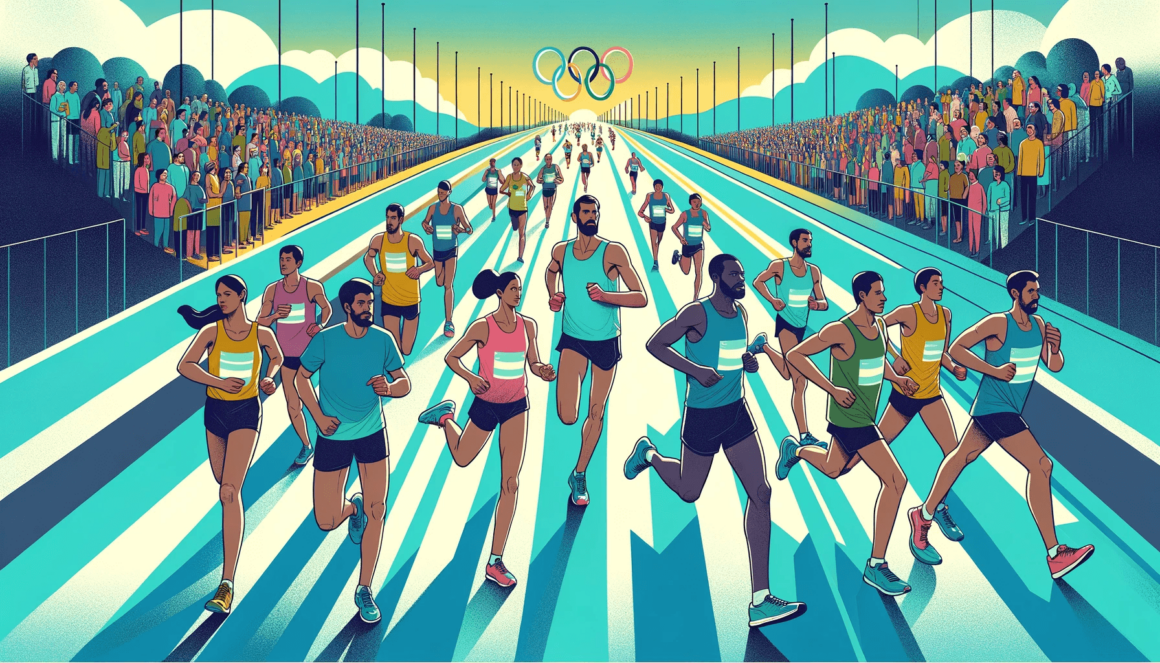How Long Is a Marathon and Other Interesting Facts
The word “marathon” is often used for any long-lasting activity, but it primarily denotes a long-distance race. In fact, the standard marathon involves a very specific distance that has to do with ancient Greece.
The Olympic marathon is 26.2 miles or 42 kilometers long, inspired by the legend of an ancient Greek messenger who ran from the plains of Marathon to Athens in 490 B.C. He announced a Greek victory in a crucial battle against Persians, collapsed, and died.
This answers the question, “How long is the marathon?” But if you would like to learn more about the origins of the marathon, important records, and more, keep scrolling!
Exciting Facts and Stats About Marathons

Now that you know the key element regarding the length of a marathon race, let’s look at some additional info you might find interesting.
1. The Boston Marathon, first held in 1897, is the world’s oldest annual marathon.
(Guinness World Records)
US long-distance runner John A. Kelley crossed the Boston Marathon finish line 61 times, winning in 1935 and 1945.
2. A half marathon is 13.1 miles or 21.1 kilometers.
(Marathon Handbook)
This piece of information is evident once you know the standard marathon distance is 26.2 miles or 42 kilometers, but we did the math, so you don’t have to. Applying the same logic, a quarter marathon is 6.55 miles (around 10.5 kilometers).
3. There are also shorter races, like 5K, 10K, and 15K marathons.
(Openfit)
“K” stands for kilometer. In miles, that would be 3.1, 6.2, and 9.3 miles, respectively.
4. Any run longer than 26.2 miles is an ultra-marathon.
(Half Marathon For Beginners)
For example, that would be a 30K race (18.64 miles), a 50K race (31.07 miles), and a 100K race (62.14 miles). Those distances are very extreme, so people running a 100K marathon can experience hallucinations, hypothermia, and other health-related issues.
5. Global data show that the average marathon time is 4:32:49.
(Marathon Handbook)
It means an average marathon pace of 9:57 minutes per mile (6:12 minutes per kilometer). In contrast, the world’s longest marathon race took nearly 55 years, and the story is a rather motivating one.
6. The fastest marathon time ever is 2:01:09, achieved by Eliud Kipchoge.
(World Athletics, Olympics.com)
The Kenyan runner set the record in Berlin in 2022. The previous record had also been set by Kipchoge at the Berlin Marathon in 2018.
7. A study shows that women are 18.61% better at marathon pacing compared to men.
(RunRepeat)
The data covers 1.81 million results from 131 marathon races from 2008 to 2014. Speaking of gender-based differences, we also know that male marathon runners earn $10,000-$141,667 while female marathon runners earn $1,667-$200,000.
8. Kenya’s Brigit Kosgei holds the women’s world record with 2:14:04.
(World Athletics)
Kosgei broke the world record in 2019 at the Chicago Marathon, which was a mixed-gender race whose result was contested by both women and men. The IAAF also recognizes the women-only record set by Kenya’s Mary Keitany, who ran the London Marathon in 2017 at 2:17:01.
Conclusion
As you can see, running a marathon is no small challenge. To be able to run 26.2 miles in just a couple of hours, most runners need several months to prepare by following a strict training plan. It also takes a few weeks to recover, so we applaud anyone who does it!
FAQ
Which are the most famous marathons?
The World Marathon Majors, also known as the Abbott World Marathon Majors. The competition series comprises the New York City Marathon, the Boston Marathon, the Chicago Marathon, the London Marathon, the Tokyo Marathon, and the Berlin Marathon.
How should a beginner prepare for a marathon?
Whether you’re a beginner or a seasoned runner, it takes time to prepare to run a marathon. A beginner marathon runner should gradually increase their running distance and race pace before they start a marathon training program.
The average marathon time is around 4 hours and 30 minutes. However, the time it takes to complete a marathon depends on many factors, such as a person’s fitness level, course conditions, and the weather conditions on race day.
Beginners should give themselves enough time to tweak their training schedule and possibly even get a personal trainer. Proper training and running long distances means burning more calories than usual, which is why nutrition is crucial in marathon preparations. And since nutrition is not just about how many calories you eat but the quality of food you eat, you should probably also consult a nutritionist.
Why is a marathon 26.2 miles?
If someone asks you, “How long is a marathon?” you will probably know that the distance is 26.2 kilometers and that the race length draws on Ancient Greek mythology. But did you know that the British royal family is credited with establishing the official marathon distance?
When the Olympic Games were held in London in 1908, Queen Alexandra of Great Britain is said to have requested for the race to start at Windsor Castle and end at the Olympic Stadium royal box – a distance of 26.2 miles.
 BC.Game
BC.Game  BitStarz
BitStarz  Ducky Luck
Ducky Luck  Red Dog Casino
Red Dog Casino